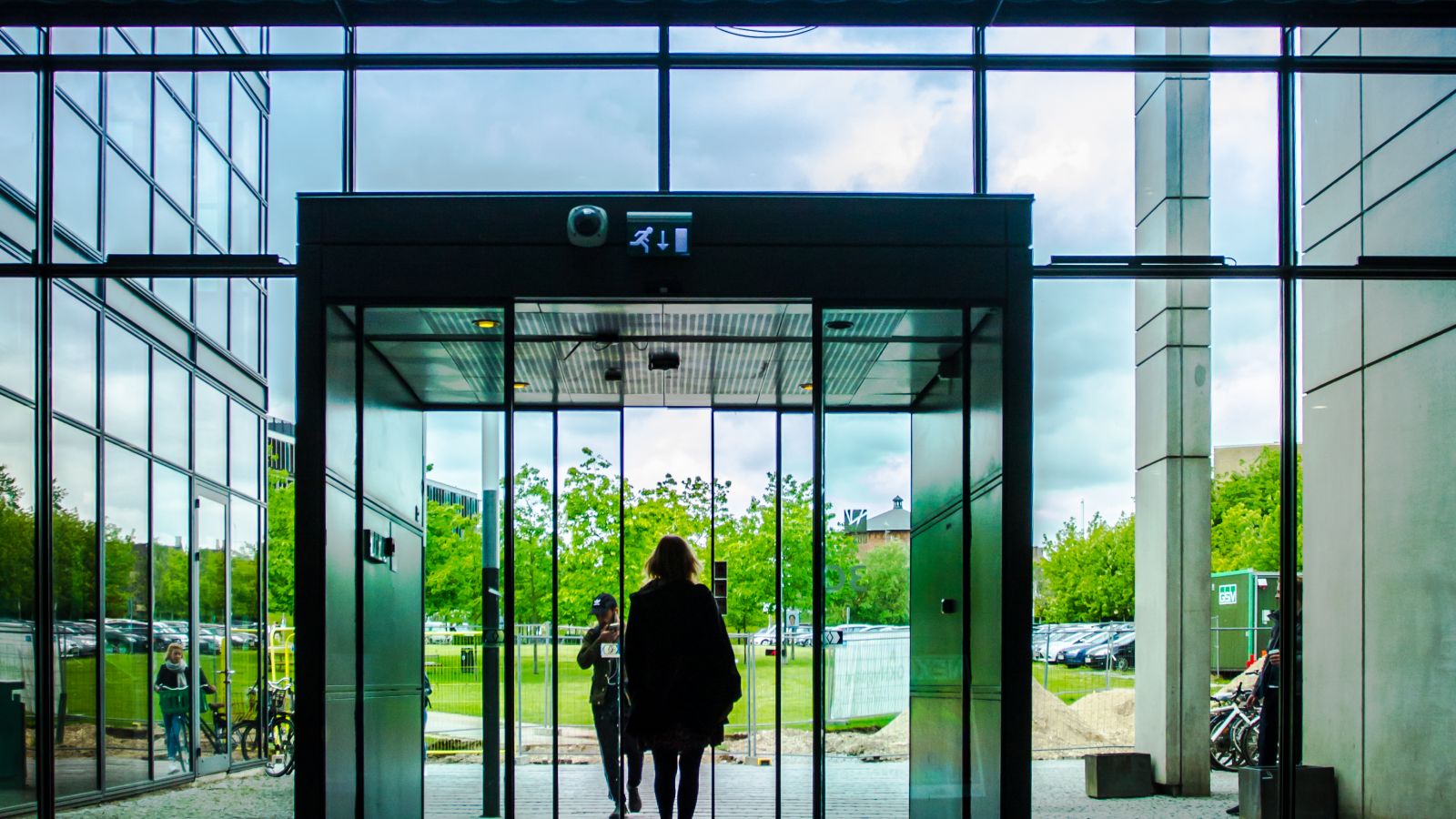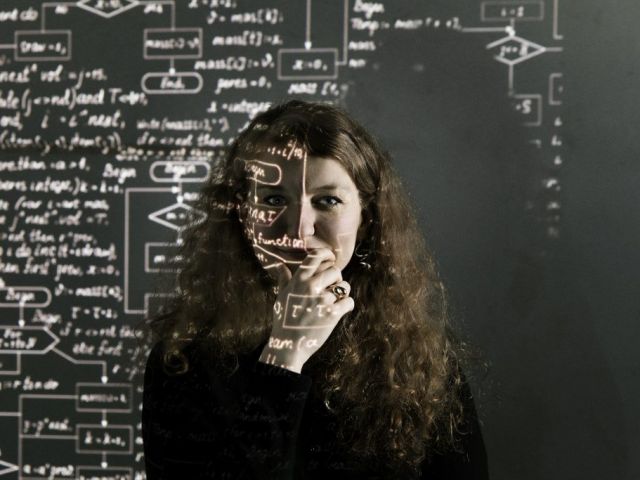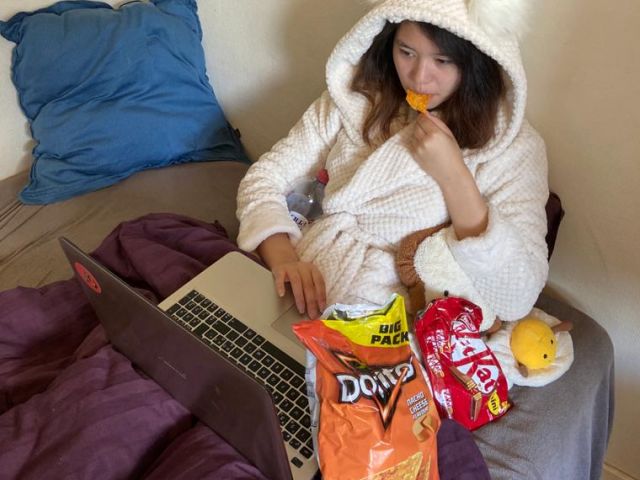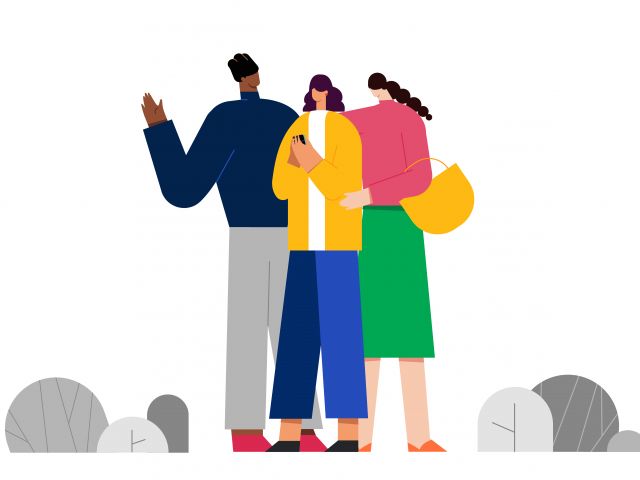Coronavirus to affect teaching and exams in the autumn semester

(Photo: Anna Holte)
At least 50% of all teaching must be carried out online and exams must be designed so they can be converted and taken online. CBS’ Dean of Education has just launched a set of principles for teaching and exams in the autumn, and a program director explains that the principles will facilitate planning for the coming semester.
The coronavirus that is currently keeping students and faculty members at home will also affect the coming autumn semester. CBS’ Dean of Education, Gregor Halff, has just launched a set of principles for teaching and exams during the autumn semester, according to a statement on CBS’ intranet, Share.
The principles are as follows:
- Lectures with more than 100 students must be rescheduled online
- At least 50% of all teaching must be done online
- Teaching on campus must be evenly distributed across the semester
- Exams must be designed so they can be converted to be taken online
- The number of written sit-in exams must be reduced by 50%, and they must have a limited capacity of 300 people per exam
- Additional elective courses and places must be made available for undergraduate and graduate students
The principles are, according to the statement, “based on the most likely scenario: that campus will be open but the size of gatherings and the distance between people will still be restricted.” An explanatory document about the principles written by Gregor Halff states that such restrictions will consequently mean that CBS will lack the room capacity to accommodate teaching in the usual way this autumn.
“It will not be possible to hold large auditorium lectures on campus, and teaching activities on campus will require larger rooms than normal. As a result, teaching will have to be adapted to online courses, blended learning or be conducted with smaller class sizes,” he writes in the document published on Share.
Furthermore, the document states that teaching may have to take place in the evenings or on weekends, if classrooms are in short supply.
Gregor Halff explains in the same document why CBS has not waited for the Danish government’s further announcements about how the universities are to structure their teaching during the coming semester.
“At present, it is unknown what guidelines Danish educational institutions will be expected to follow from September to December 2020. At the same time, there is a need to provide a framework for planning teaching and examinations for the autumn semester to allow instructors, the administration and students to prepare as well as possible for when the semester begins,” he writes.
As the statement on Share describes, the principles for the autumn semester are “not to be confused with a campus re-opening plan, but as guidelines to prepare the university for the long-term threat of COVID-19.”
Planning an untraditional semester
Bersant Hobdari, Associate Professor and Program Director of the BSc in International Business and the GLOBE Program, welcomes the new principles, although a lot of work awaits on transforming the coming semester’s planned teaching activities to suit online setups.
“I’m happy that the dean is proactive in planning the fall semester. As a teacher, it’s important to be certain how your teaching will be delivered. There’s a huge difference in planning an online or physical teaching setup,” he says.
According to Bersant Hobdari, all the lectures planned for the IB students will take place online, as more than 100 students watch those lectures. Right now, the program management and the course coordinators are discussing how to apply the principles and plan the courses’ delivery with the constraints laid out, he explains.
They are also considering how to welcome the new IB students, who will have “a different entry to CBS and university life”.
“Given that all the lectures will be online, we need a specific plan to bring new students together. The same applies to the intro week, where we’ll probably still have restrictions on how many can gather and social distance. The study board, in cooperation with study start coordinators, will plan a series of activities to ease the introduction to CBS and prepare the new students for an untraditional semester,” he says and continues:
“It’s all a matter of planning, and that’s why it’s good that the dean is taking action so early.
Fewer students abroad = more electives
Apart from having to re-plan and re-schedule the coming semester, the coronavirus has also presented us with a different obstacle. As described in a previous article in CBS WIRE, about 1,000 CBS students were expected to go on exchange in the fall semester. However, due to COVID-19, many of them are likely to stay at home.
This puts extra pressure on the capacity of some critical elective courses at CBS, and different measures are being taken to make room for the extra students. For example, Martin Jes Iversen, Vice Dean of International Education, explained in a previous article in CBS WIRE that CBS is working on establishing additional electives in collaboration with international partner universities.
To guarantee a wide selection of electives, the following measures are being taken, according to the explanatory document:
1) Conversion of already existing popular electives into purely online courses, in e.g. finance and marketing, in a way that increases capacity significantly.
2) Analysis of the possibilities available for establishing new online electives in collaboration with international partner universities.
3) Deciding no later than 8 June 2020 whether there is a need to develop new electives, duplicate existing courses or otherwise provide additional space on electives.
Right now, the departments, together with the course coordinator and study board of each program, will determine the course of the autumn semester in dialogue with the General Consultation Committee (HSU). The study boards must submit plans to the Dean of Education by June 1.






































































































































Anyone knowing how this will affect the applications for an international full degree student? Is there a possibility that the first semester will be taken on distance?
Best regards,
Isabelle